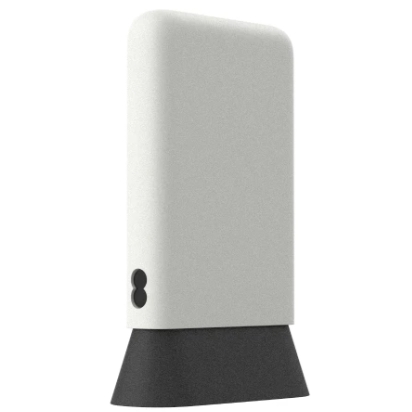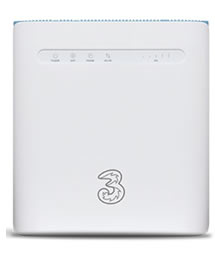
If you’re looking for a home broadband solution then you’re not limited to wired options – you could also go for 4G home broadband, which has a number of advantages, not least being how quick and easy it is to get set up.
Yes, 5G home broadband is also available, and we’ve got a guide to the best 5G routers too. 5G home broadband is faster, but it’s not available everywhere, it can be more expensive, and it might be more speed than you need. So there’s still a place for 4G home broadband, and if you’ve settled on that, then you’re in the right place.
But the bigger decision then is which 4G router to go with. We’re here to help – below we’ll run you through the very best 4G routers available on UK networks, along with other options you might want to consider.
The best 4G routers
The following routers are the best 4G ones that are currently available from any network in our opinion.
ZTE MF286D

The ZTE MF286D is available on Three as the Three 4G Hub, which is what you'll get when you take out Three 4G Broadband, and it’s one of the very best 4G routers you can get.
It’s a Cat 12/13 device, with download speeds of up to 600Mbps and upload speeds of up to 150Mbps. But as with any 4G device your actual speeds will depend more on your network and coverage, and are unlikely to be that high.
Still, it’s certainly one of the fastest 4G routers, and it also benefits from a generous four Ethernet ports for wired connections (recommended for gaming), plus two antenna sockets and support for up to 64 connected devices at once, which is more than almost any home should need. In all the Three 4G Hub is one of the most full-featured 4G routers you’ll find.
EE Smart 4G Hub 2

The EE Smart 4G Hub 2 is EE’s latest 4G home broadband router, and it’s one that the network hasn’t provided many details of, but it’s notable simply for being on EE, which tends to deliver faster 4G speeds than most rival networks.
TP-Link Archer MR600 V2
.jpg)
Like most router names, the TP-Link Archer MR600 V2 is a mouthful, but it’s the router that National Broadband use for 4G plans, so it’s notable for that reason, as they’re a key supplier of 4G broadband in rural areas. Though they much more simply call it the 4G WiFi Router. Being offered by National Broadband wouldn't on its own get it a place in this list though – it also has to be good, and luckily it is.
The TP-Link Archer MR600 V2 is a Cat 6 device offering data speeds of up to 300Mbps (though as ever real-world speeds will depend on your network and location), along with the ability to get up to 64 devices online at once.
It comes with two detachable 4G antennas, supports both 2.4GHz and 5GHz Wi-Fi, and has four Ethernet ports, so there’s plenty of scope to plug devices in for a wired connection to the router. It’s also compatible with TP-Link’s OneMesh products, which means you can use it as part of a mesh network if you buy into the manufacturer’s ecosystem.

National Broadband 4G Internet Router
.png)
What about 5G routers?
If you want even better speeds (and have 5G coverage in your home) then you should consider one of the best 5G routers instead. These are available from a similar selection of networks, including Three, EE, Vodafone, and National Broadband.














